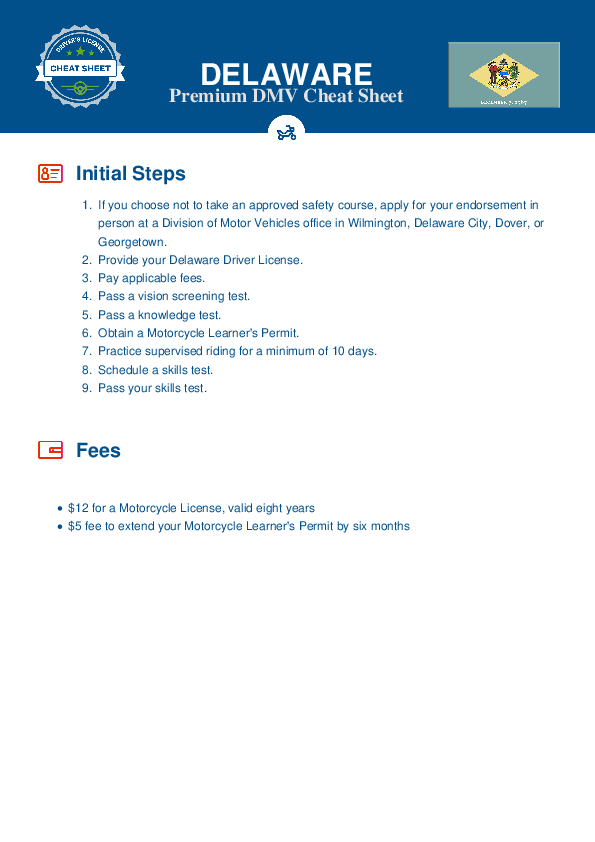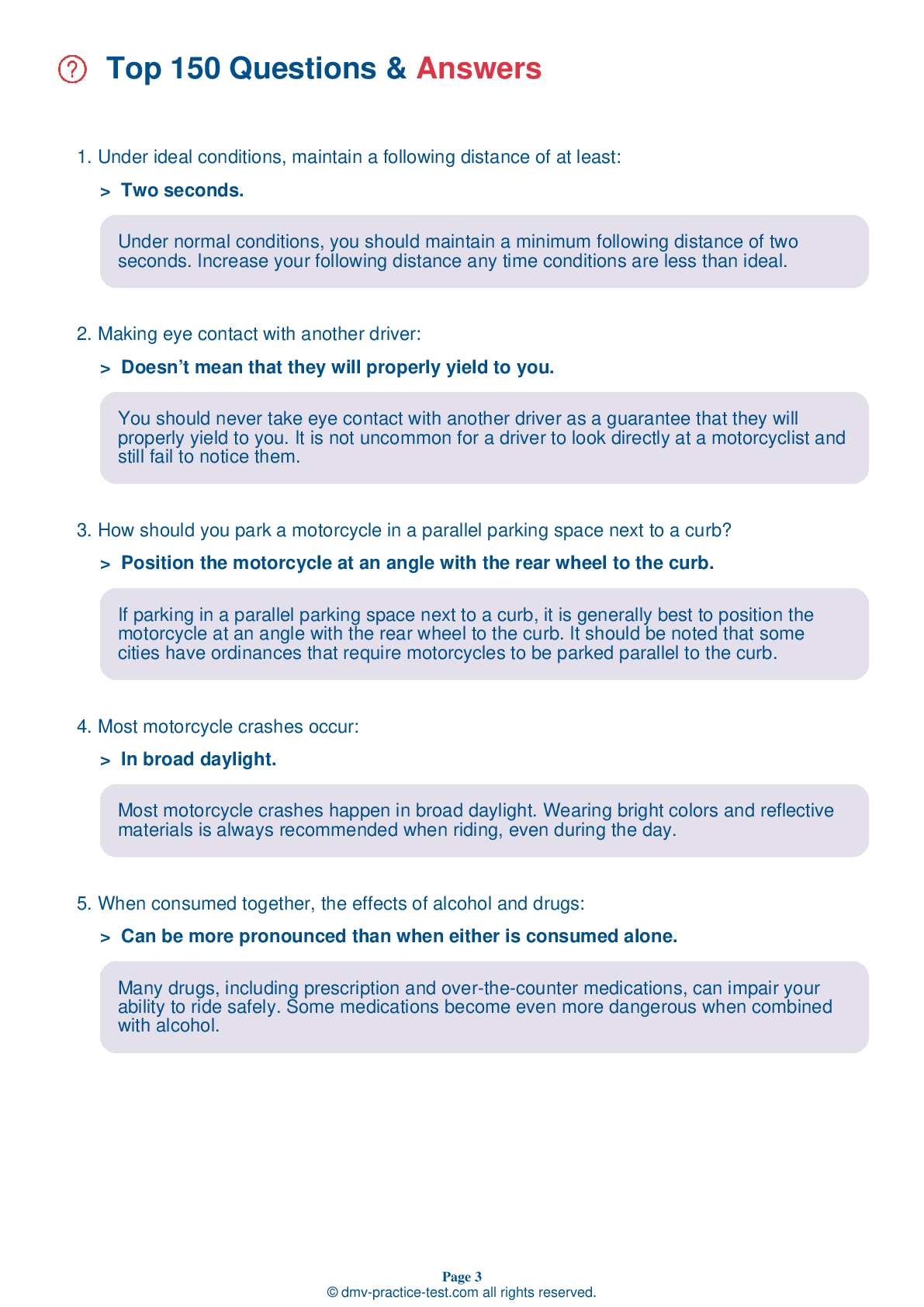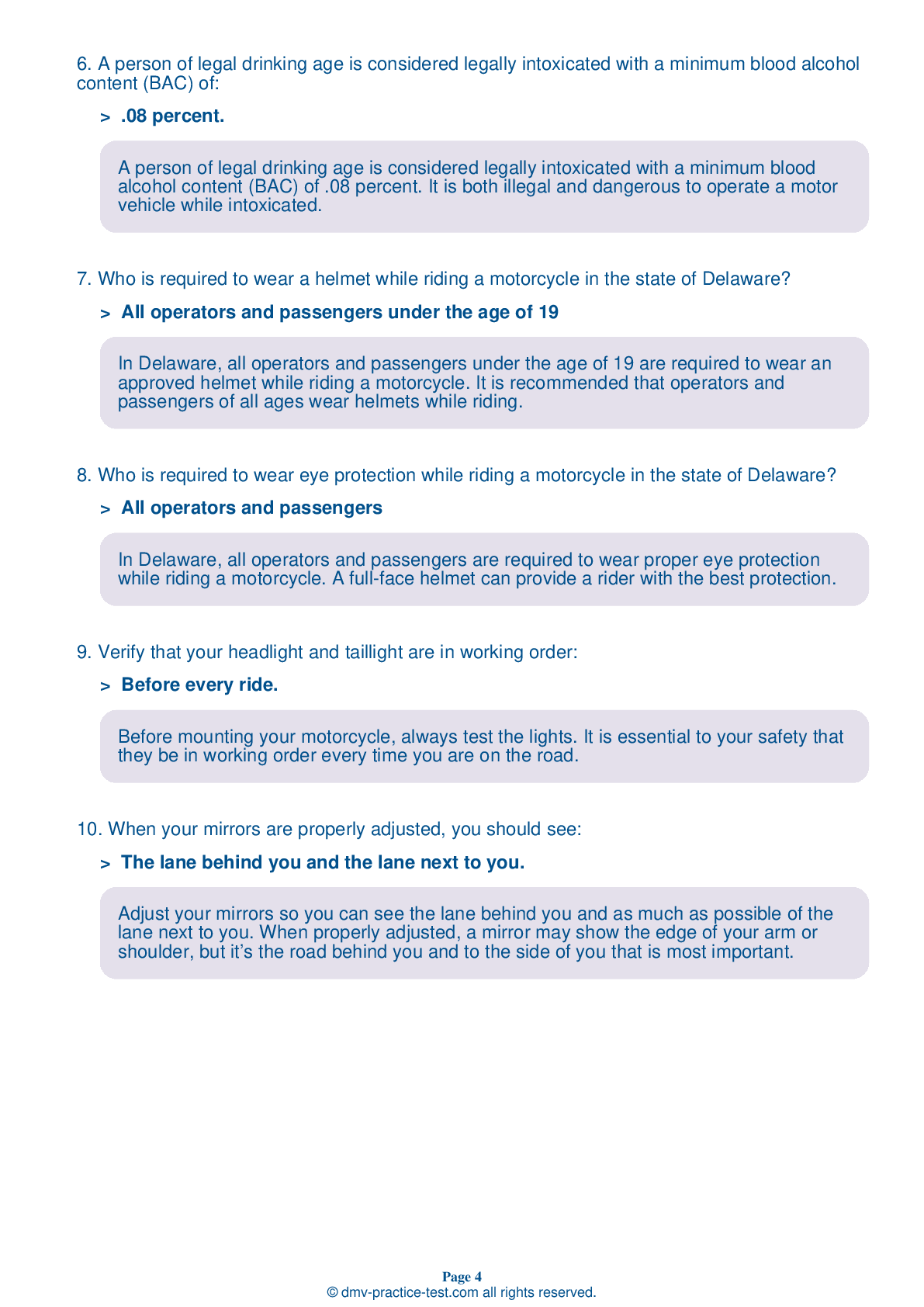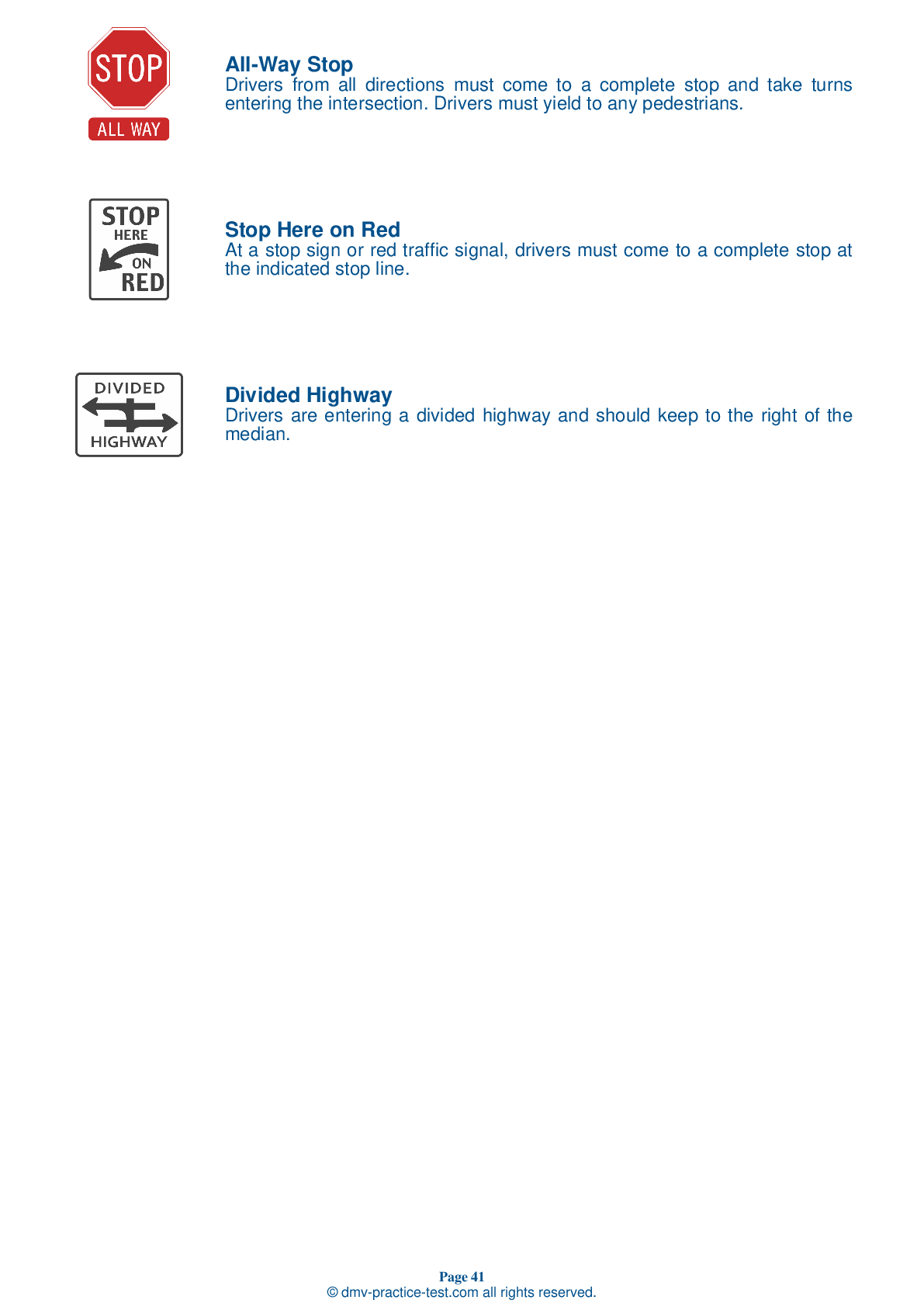Motorcycle Test | License DE 2026 | FREE Online Practice! #1 Page 2 of 4
Take this FREE motorcycle test (license in DE 2026) to check your knowledge of the road rules. To improve your results, download a motorcycle handbook online, study theory, and practice for free on our website. Still worried about how to get a motorcycle license in Delaware in 2026? Check our website for more sample tests, train as much as possible, and boost your grades!
7 . When being passed by another vehicle, motorcyclists should be alert to:
When being passed, motorcyclists should be careful not to be hit by any part of the passing vehicle, including its mirrors. In addition to the vehicle itself, motorcyclists should also be aware of wind gusts coming from the passing vehicle and potential objects being thrown by a passenger in the vehicle who may not be paying attention to the road.
8 . To properly control a motorcycle, you should:
When riding, you should be positioned so that you are able to easily operate all controls. Sit with your arms slightly bent and use your arms to steer rather than to hold up your body. Keep your knees against the gas tank to help maintain your balance during turns.
9 . In general, which position within a lane is the best to ride in?
There is no single lane position that is always best and no single lane position that should always be avoided. A responsible rider adjusts their position as conditions change.
10 . It is recommended that you take a curve by beginning on the outside of the curve, moving to the inside of the curve, and exiting on the outside of the curve. An alternate option is to:
If there is no traffic present, it is recommended that riders take a curve by beginning on the outside of the curve, moving to the inside of the curve, and exiting on the outside of the curve. An alternate option is to start the curve in the center of the lane and remain in the center throughout the curve. Be aware of changing road and traffic conditions and adjust as necessary.
11 . When motorcyclists ride in a group:
When traveling in a group, less experienced riders should be placed near the front of the group behind the leader. This way, more experienced riders can lead the way and watch the inexperienced riders at the same time.
12 . This sign shows one type of:
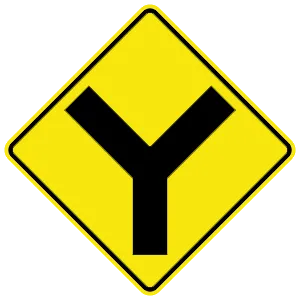
Warning signs are usually yellow with black markings. This sign warns that your current road ends at an intersection straight ahead. Slow down and prepare to yield or stop before turning right or left.
See the exact questions that will be on the 2026 Delaware DMV exam.
99.2% of people who use the cheat sheet pass the FIRST TIME
Jeneen was tired of paying $5/gallon. She got herself a scooter that required the motorcycle license. She studyed the motorcycle test cheat sheet and passed her test the next day!
Christopher tells us how he knew nothing prior to obtaining the motorcycle study guide, and he only got one question wrong because he clicked on the wrong answer by mistake.
